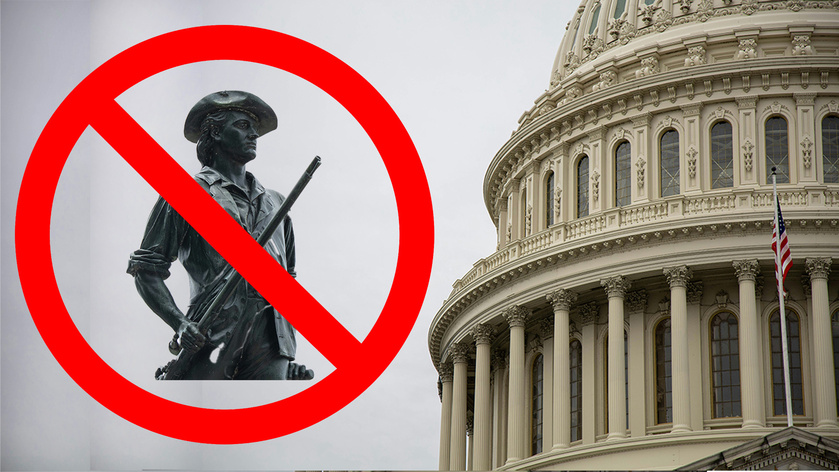
The gun grabbers in Congress are at it again. Attempts to disarm the American people have only been moderately successful over the past few years. So a bill was recently introduced in the House of Representatives entitled “Preventing Private Paramilitary Activity Act of 2024”. This bill wants to make it a crime for private citizens to work together to defend their rights. If this bill were to become law some day, even training together could not only get you fined, but placed in jail, possibly for life.
Have these members of Congress forgotten that our war of independence was started by an attempt by the British governor of Massachusetts' attempt to disarm the people? That the the battles of Lexington and Concord were fought by private citizens who formed a militia? Or could it be that they just don’t care about our rights and the Constitution, and are just looking for another way to subjugate the American people?

Who is in charge of your children? That has been a perennial question that has grown in importance over the last few years. When I was a child, it was understood that, with rare exceptions, parents were in charge of a child’s upbringing. This included medical, religious, and educational decisions. However, over the last few decades, the role of the parent in these decisions has been replaced by experts. What happens when the goal of the experts differs from those of the parents? Who decides the future of the rising generations? It was understood that the state acted in loco parentis, in place of the parents, only for the safety of the child. A recent case in U.S. District Court shows that be it health departments, child services, schools, or even the courts. Government not only believes they know better than the parents, they are more than willing to act in loco parentis tyrannis.
https://constitutionstudy.com/?p=8897
With the release of ChatGPT and other artificial intelligence (AI) applications, there has been a lot of speculation and downright assertions about our future. With over 30 years of experience in Information Technology (IT), not more than a passing understanding of AIs, I've come to the conclusion that much of what I've heard is more science fiction than fact. A recent court case decided in the D.C. District Court revolved around one very important question. Do AIs have rights?
In this third installment of the three-part series on the branches of government, we look at the role of the third and weakest branch. At least that is what our Founding Fathers thought of it. What is the role of the federal judiciary? What are the extent of their powers, how do they related to the other two branches of government, and why is a proper understanding of the role of the judiciary critical if the United States is to remain a constitutional republic?
https://constitutionstudy.com/?p=8575
The killing of a woman in Minneapolis has led to a lot of rhetoric, most of it both inflamed and inflammatory. With both sides claiming to have evidence they are right, what are we to do? Let’s start by looking at the evidence, without emotion, and admit what we don’t know. - Live 4PM ET with Host Paul Engel @CyberEngel @OutLoudNews
LIVE https://buff.ly/qun0aPH
iHEART RADIO http://bit.ly/2mBrCxE

Dangers of depending on government
Have you ever sat in a chair, depending on it to hold you up, only for it to fail miserably? What happens when you put your faith in government to protect you and they fail miserably? - Live 4PM ET with Host Paul Engel @CyberEngel @OutLoudNews
LIVE https://buff.ly/qun0aPH
iHEART RADIO http://bit.ly/2mBrCxE

When a government agency searches without a reason it’s called “fishing”. When the Attorney General of New Jersey issued a subpoena demanding the names, addresses, and phone numbers of the donors to a pregnancy center, it wasn’t just fishing, it was searching for a white whale.
https://constitutionstudy.com/2026/01/12/505-unreasonable-searches/













